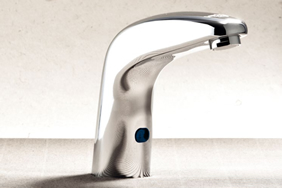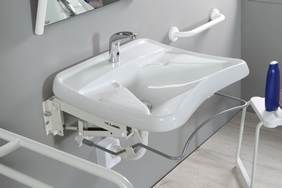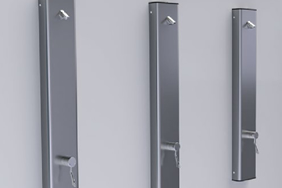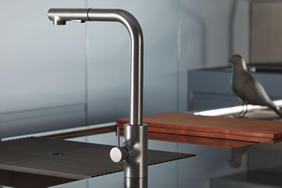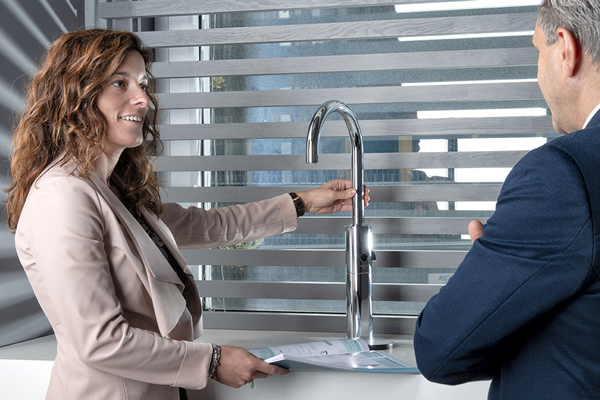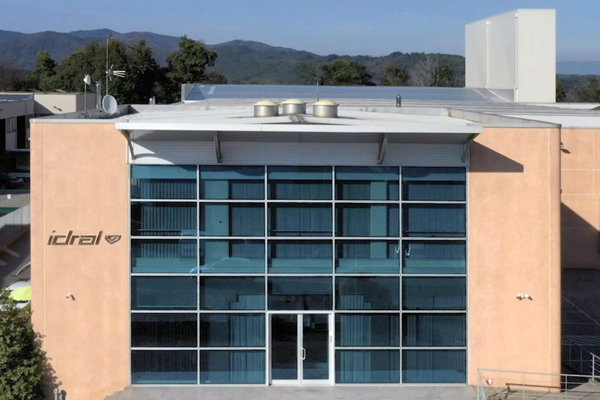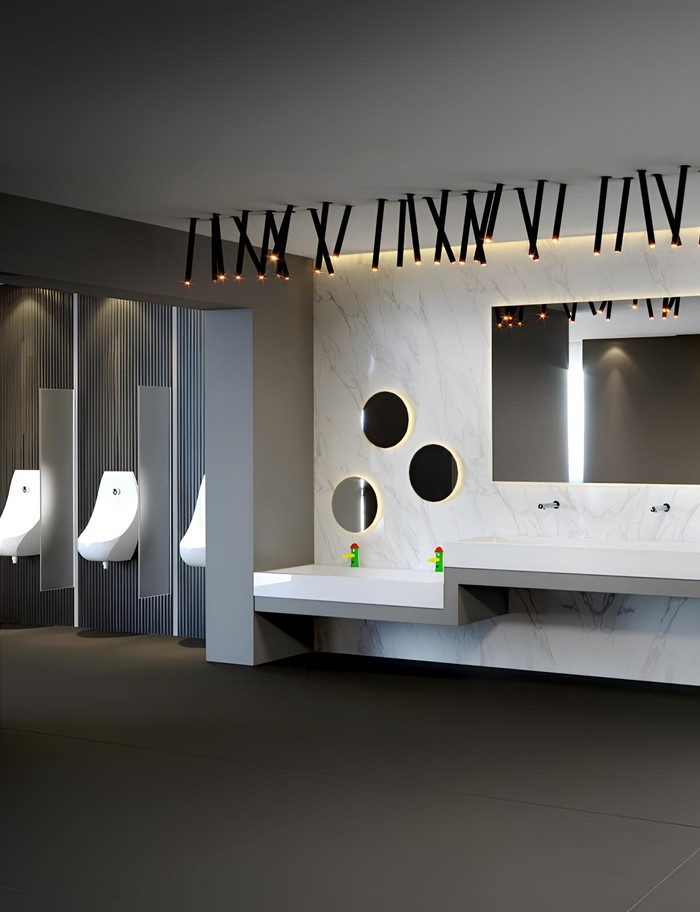
Equipping large spaces with adequate sanitary facilities means keeping some specific needs in mind. First of all, the context must be assessed: the bathroom in a gymnasium or swimming pool has profoundly different needs from that in a shopping centre, an airport or a supermarket, because the activities and the time spent there change, hence a different structure and ad hoc solutions. What all the bathrooms of large spaces have in common, however, are certain guidelines and objectives to be achieved, from which among other things arise the greatest pains of those who have to set them up and then manage them:
- Functionality
The bathrooms of large spaces must be extremely functional, because they must reduce dwell times as much as possible while guaranteeing excellent service. There is a subtle balance between size and economic viability of the project: the larger the room, the higher the cost of setting up and running it, unless you aim for advanced technical solutions that allow the same number of people to be served in the same unit of time by reducing the size of the room. In any case, do not put people in the queue.
- Robustness
We are still talking about a public environment, subject to 'careless' use by hundreds of people. Being able to withstand bumps and knocks is an absolute necessity in order to avoid escalating costs.
- Hygiene
Never as in the past year have people used toilets to wash and disinfect themselves. This has increased their use even more, with the risk of the place dedicated to hygiene becoming a vector for the transmission of viruses and bacteria.
- Ease of cleaning
Bathrooms in large spaces need to be disinfected frequently, but it is not always easy to reach the entire surface of taps and fittings, with the risk that cleaning is not complete and effective.
- Water saving
A key aspect is water saving. Bathrooms in large spaces must use the right amount of water for the task at hand: not a drop more.
Bathrooms and large spaces: Idral focuses on innovation
Facilities do not always manage to meet all the requirements we have mentioned at the same time. Some insist more on ergonomic design but suffer limitations in terms of solidity and ease of cleaning, others do not equip themselves with advanced water-saving technologies or perhaps are not the best on the hygiene front. In many cases the limitations affect life-cycle costs like boulders, in others - even worse - the sustainability and safety of the system.
Idral has been present on the plumbing market since 1970, is perfectly familiar with the needs of bathrooms in large spaces and, thanks to a highly innovative spirit and processes, has over the years developed products capable of synthesising them all. Idral taps and sanitary fixtures can be found, among others, at theMoscow airport, the Olympic Stadium in Barcelona and were on display at theMilan Expo. In facilities such as these, optimisation of all the above criteria is essential to interact with hundreds and hundreds of different users every day, guaranteeing high performance and continuity of service.
This is why a single Idral tapware product, exclusively MADE IN ITALY, blends ergonomic design, extreme sturdiness and attention to hygiene, as well as low water consumption: in this regard, it is worth mentioning that Idral was the first company in Italy to adhere to the WaterLabel, the classification system for water consumption of tapware products. To the needs of large spaces, the company responds with taps equipped with automatic flow closure, both timed and electronic with low-consumption infrared systems. This has a positive impact not only on water consumption, which remains very low, but also on hygiene, as contact with the taps is absent or reduced to a minimum, with the addition of the Legionella prevention system for an additional level of safety. For space managers, Idral products also ensure great practicality and simplicity of installation, with minimal adjustments and standardised spare parts to speed up any replacement activity.





